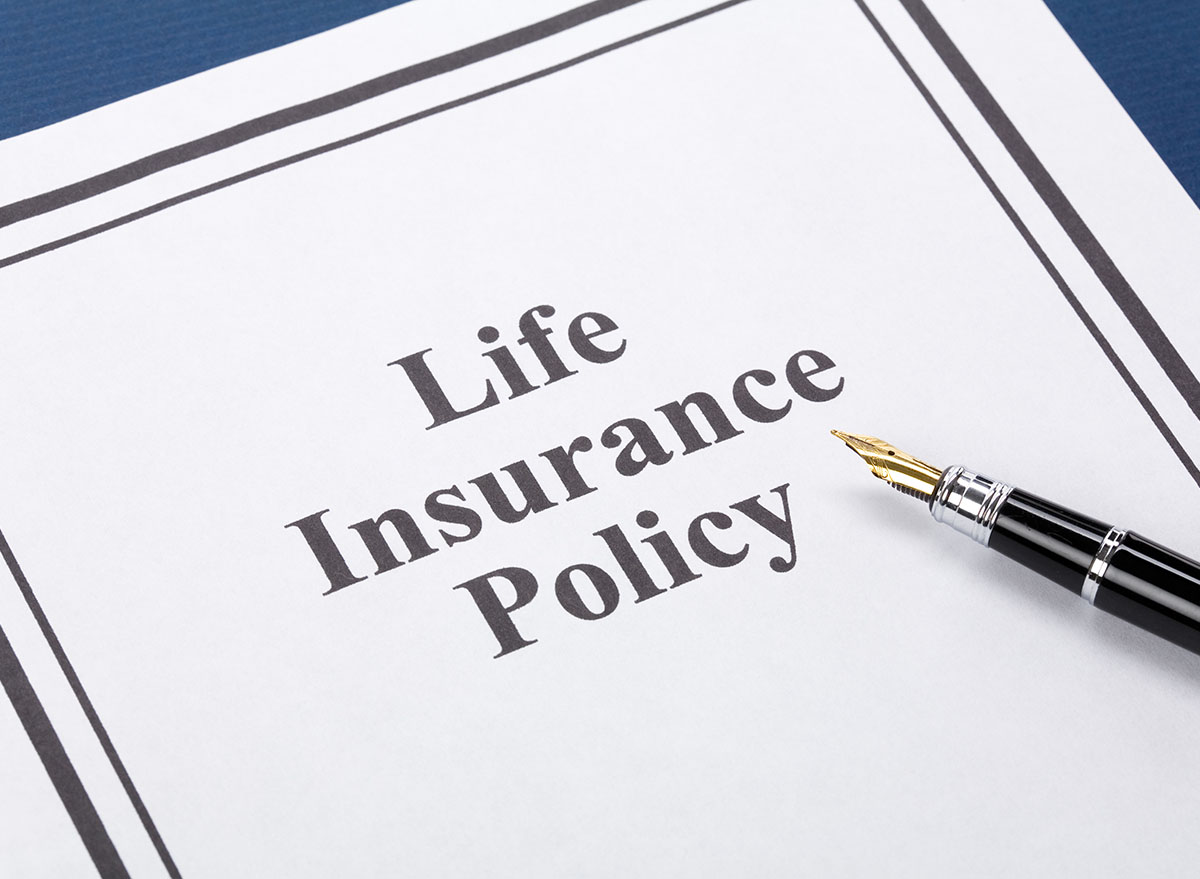5 Things You Should Stop Buying After Age 50, Finance Experts Say
Trim your spending strategically for more financial freedom.

As you get older, your financial needs change—and so should at least some of your spending habits, experts say. If you've ever looked around and noticed that the things you used to spend your money on freely are now draining your bank account, it's time to reassess. After age 50, it's especially important to turn the spotlight onto your spending habits, evaluating how your finance style might be affecting your long-term savings. Wondering which things to stop buying as you approach retirement? These are the items you should think twice about before opening your wallet, financial experts say.
RELATED: 6 Ways to Earn Passive Income During Retirement, Finance Experts Say.
1
Whole life insurance

Life insurance can help protect your family from financial strain in the event of your untimely death. However, if you're over 50, finance experts say that it's best to give careful consideration to whether or not the plans on offer are financially advantageous. Many of them are not worth the cost, they warn.
"While life insurance is important, the high premiums of whole life policies might be costly and it may be more cost-effective to look at term life insurance," says Chad Gammon, MBA, a financial planner at Arnold and Mote Wealth Management.
David Delisle, author and money mindfulness expert at The Awesome Stuff, agrees that you should think twice before buying life insurance over 50. "If you already have an existing policy, that's great. However, if you don't have an existing policy, the cost of this insurance makes it a poor choice as you get older," he says.
2
Unnecessary home renovations

After retirement, it's common to spend more time at home than you did in your working years. However, the experts warn against investing too much money into unnecessary or purely aesthetic home renovations, which can cut deeply into your savings.
"Maintaining and modestly updating your home helps with keeping your home value competitive, but some home renovations may not drive up the home value or you may not benefit as much as you think," says Gammon. "It may be wise to check with a realtor beforehand."
RELATED: Never Use Your Credit Card for These 6 Purchases, According to Financial Experts.
3
Complex or risky investments

If you don't have as much in retirement savings as you hoped you would, it may be tempting to funnel your money into risky investments with potentially big payoffs. Yasmin Purnell, a personal finance writer and the founder of The Wallet Moth, says that people over 50 make this mistake all too often.
"Approaching retirement, your focus should shift towards preserving the capital you have already accumulated rather than striving for aggressive growth with high-risk investments that could jeopardize your retirement savings," Purnell tells Best Life. "Safer, income-generating investments are advisable to ensure financial stability and peace of mind during your golden years."
Gammon agrees and adds that it would be wise to consider consulting with a financial advisor before proceeding with any major investments.
4
Adult children's expenses

At some point, your children have to leave the nest and support themselves financially. If you reach the age of 50 and you're still shelling out cash, Gammon says it's time to rethink this particular financial habit.
"Supporting adult children might hinder your ability to save for your retirement and your child's ability to become financially independent," he notes.
RELATED: 8 Things You Should Stop Buying If You're Middle Class, Financial Experts Say.
5
The latest tech

The expense of always snagging the newest tech devices can quickly add up, which is why, as you get older, it's wise to stop buying these items out of impulse, instead focusing on items you truly need.
"If you tend to buy the latest phone, laptop, or other tech as soon as it's available, it might be worth evaluating how much quality that's adding to your life," says Todd Stearn, founder and CEO of The Money Manual.
He suggests instead asking yourself whether you might be just as happy with a familiar, functional phone that's a few years old.
"If so, save yourself both a significant chunk of change and the time spent researching, purchasing, and swapping everything over by sticking with your devices until they become problematic in some way—or at least until a revolutionary new feature arrives that looks like it could be an absolute game-changer for you," he recommends.
Best Life offers the most up-to-date financial information from top experts and the latest news and research, but our content is not meant to be a substitute for professional guidance. When it comes to the money you're spending, saving, or investing, always consult your financial advisor directly.





















